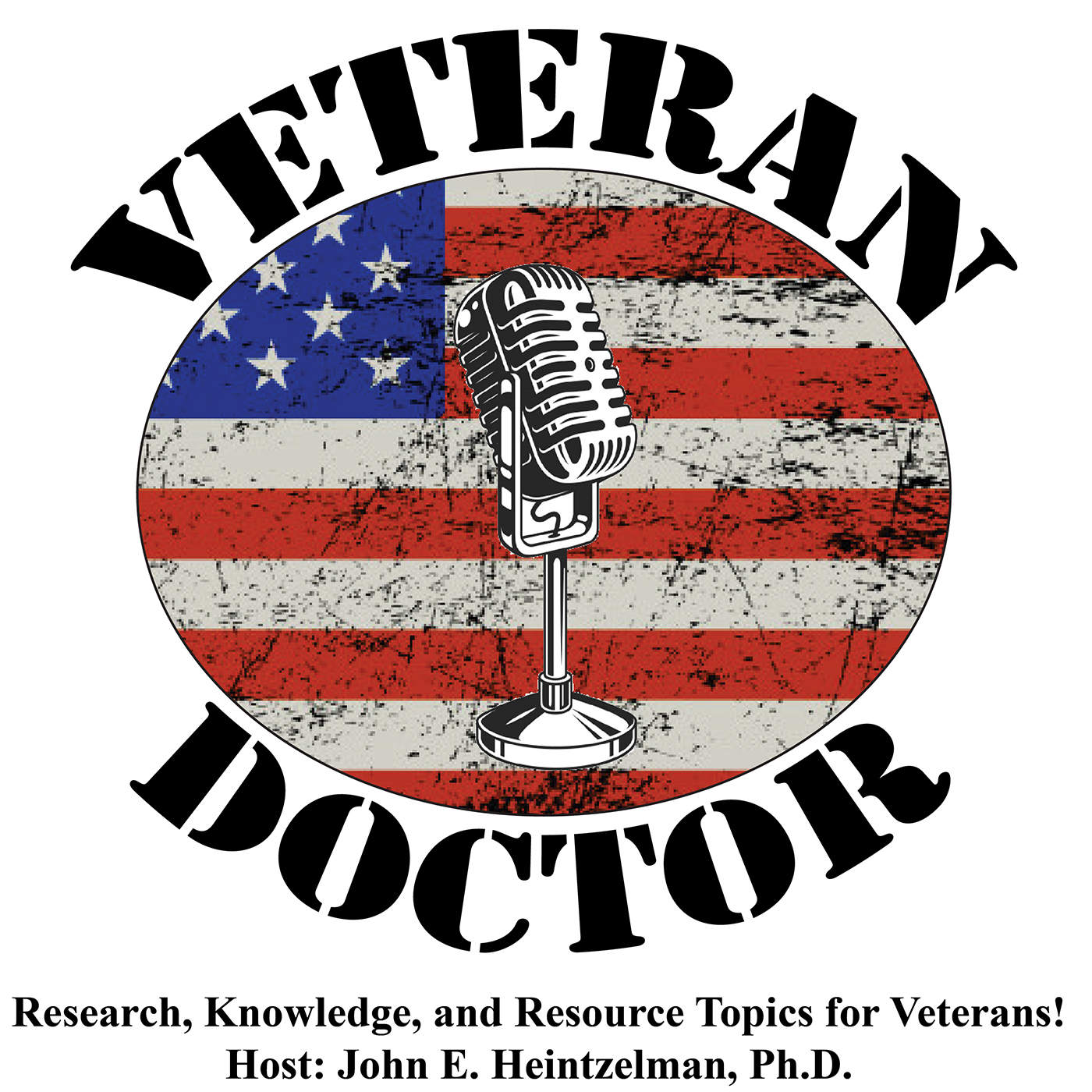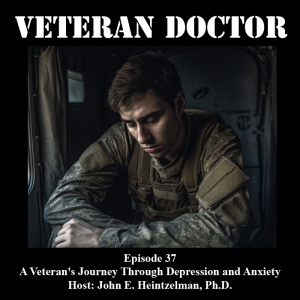
1.7K
Downloads
40
Episodes
This podcast is for anyone interested in Veteran-centric topics. Veterans have dedicated their lives to serving our country, so now it is our turn to serve them as they transition back into their civilian lives. One thing that has been discovered is that there is a lack of knowledge on the availability of resources and how to properly navigate the system upon exiting military service. This podcast's purpose is to help fill this gap of knowledge and guide veterans to the resources and information that they so deserve.
Episodes

Saturday May 06, 2023
Saturday May 06, 2023
Life after military service is a new beginning, often filled with challenges and opportunities. However, as a veteran, navigating the landscape of depression and anxiety can be a steep climb. In this article, we explore the complexities of mental health in the veteran community from the perspective of a veteran, touching on ways to cope and seek help in order to lead a fulfilling post-service life. Military life, a walk in the park, right? Who wouldn't love the thrilling experiences of combat and the pure joy of adjusting to a "normal" life afterward? In all seriousness, though, military service can leave indelible emotional scars on the minds of our beloved veterans. We're here to sarcastically admire the often overlooked yet genuinely prevalent issues of veteran depression and anxiety, their not-so-obvious causes, and the delightful cocktail of support and treatment options available.
The "Small" Problem
Depression and anxiety are just minor issues in the veteran community, aren't they? Well, not exactly. The U.S. Department of Veterans Affairs suggests that a whopping 1 in 3 veterans seeking treatment suffer from depression, anxiety, or both. Moreover, the National Center for PTSD says around 11-20% of Iraq and Afghanistan war veterans experience PTSD. So, it turns out that these conditions are not "small" problems after all!
Such "Unique" Causes of Veteran Depression and Anxiety
Who would have thought that being a veteran could come with a unique set of stressors leading to depression and anxiety? Let's explore the oh-so-surprising factors that contribute to the mental health of our heroes:
· Traumatic experiences: Veterans only deal with life-threatening situations, the death of comrades, and the horrors of war, but hey, no biggie, right?
· Transition challenges: Who knew that adjusting to civilian life after service could be so darn difficult? It's just a simple matter of finding a new career, fitting into society, and completely changing one's routine!
· Physical injuries: Injuries like traumatic brain injuries and chronic pain couldn't possibly affect someone's mental health. Oh, wait.
· Loss of camaraderie: When veterans leave the service, they apparently leave behind that special bond with their military peers. Who could have guessed that losing this support system might lead to depression and anxiety?
Strength in Adversity: The Stigma and the Struggle
As a veteran, I can attest to the fact that acknowledging and discussing mental health issues is no easy task. The stigma surrounding mental health in the military community can make it difficult to open up and seek help. However, through honest conversation and vulnerability, we can break down barriers, encourage understanding, and pave the way for fellow veterans to receive the support they need.
Support and Treatment Options: Spoiler Alert - They Exist!
Veterans with depression and anxiety need not worry; they can always turn to these marvelous resources and treatments:
· VA Mental Health Services: Our trusty Department of Veterans Affairs offers a delightful assortment of mental health services, from therapy to counseling and medication management.
· Peer support programs: Vet Centers, Team Red, White & Blue, and the Wounded Warrior Project provide incredible support groups for those veterans struggling with mental health issues. Who wouldn't love to bond with others in the same boat?
· Cognitive-Behavioral Therapy (CBT): CBT, the magical therapy that teaches you how to identify and modify your negative thought patterns and cope with the world. Hooray!
· Medication: Pills, pills, and more pills! Antidepressants and anti-anxiety medications can help manage the symptoms of depression and anxiety.
· Alternative therapies: Not a fan of traditional treatments? Don't fret! You can try meditation, yoga, acupuncture, or art therapy to help you on your healing journey.
Strategies for Personal Growth and Healing
Navigating depression and anxiety as a veteran is a unique journey. Here are some strategies that have helped me, and that may help other veterans, in overcoming these challenges:
· Embrace open communication: Sharing your thoughts and emotions with a trusted friend, family member, or therapist can provide relief and a sense of understanding. Talking about your experiences can make a significant difference in your journey toward healing. Don't be afraid to talk about your feelings: Bottling up your emotions is always a great idea, right? Wrong! Sharing your thoughts and feelings with a trusted friend, family member, or therapist is a great way to find some relief.
· Prioritize self-care: Taking care of your physical, emotional, and mental wellbeing is crucial. Engage in activities that bring you joy, maintain healthy habits, and surround yourself with a strong support network.
· Establish routines: Having a routine can help create stability and reduce stress. Focus on incorporating habits that promote a healthy lifestyle, such as balanced meals, regular exercise, and proper sleep.
· Reach out for help: There is no shame in asking for help when you need it. Mental health professionals, support groups, and loved ones can provide guidance and support throughout your journey.
· Practice patience: Remember that healing is a gradual process and setbacks are to be expected. Be patient with yourself and acknowledge the progress you have made.
· Learn to accept help: We get it – independence is fantastic, but so is accepting help when you need it. Reach out to mental health professionals, support groups, and loved ones for guidance.
A Path to Resilience: Thriving Beyond Depression and Anxiety
Despite the challenges of depression and anxiety, I firmly believe that recovery is attainable for veterans. Through professional help, self-care, and the support of our community, we can overcome these mental health challenges and build a meaningful life after service. It's important to remember that resilience is at the core of every veteran's experience, and it's that resilience that can propel us towards better mental health and a brighter future.
Well, who would have thought that depression and anxiety are actually common mental health issues among veterans? We must, albeit sarcastically, admire the unique challenges faced by our heroes during and after their military service. It's crucial for us, as a society, to make sure these brave souls get the resources and care they deserve. And hey, maybe even take a moment to genuinely appreciate their sacrifices, because sarcasm aside, they've earned it.
Version: 20241125

No comments yet. Be the first to say something!